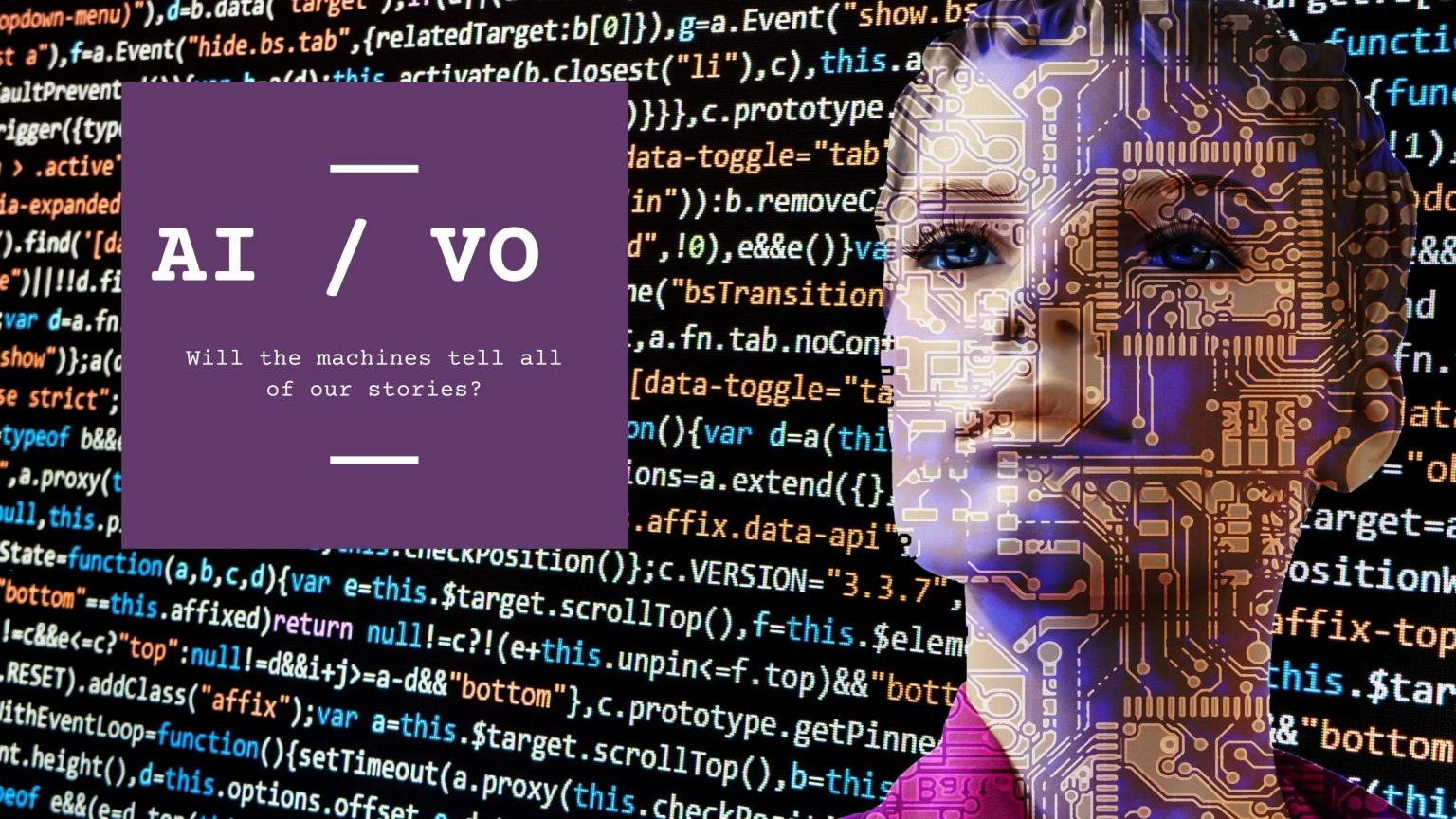
The notion of an AI future is an ongoing one that is fluid and complex. Yuval Harari suggests in his manifesto of a book: ‘Homo Deus: A Brief History of Tomorrow’, that we are already experiencing what is often referred to as humanity’s singularity – our morphing into beings that are beyond human.
Most of us have acquiesced and enabled privacy rights to be compromised when we sign on to apps online, we carry mobile devices that host most of our identity and we already spend much of our day in a virtual world. He suggests that some time in the future, and it may not be too far off, a version of humanity will be sent out into the far reaches of space, equipped physiologically to deal with the constraints of space itself. That is beyond the reach of this article.
What is in the frame is the question of human voice. I’m writing as a voice artist, and an actor. Even live theatre is a space where the complicit engagement with story is tangible and driven by human emotion, but which is also morphing into virtual worlds of motion capture and gaming technology where characters are not human. The Royal Shakespeare Company’s latest version of Midsummer Night’s Dream is a case in point. It repurposes Shakespeare’s play for an online audience.
It was conceived by the Audience Of The Future Consortium, which explores “what it means to perform live using technologies such as virtual reality, augmented reality and mixed reality.”
To isolate one final moment in the ‘singularity’, that transition from human experience and emotion (and perhaps I am being dramatic here, but it is an occupational hazard) might be when all stories, all narration is spoken not by human voice but by an algorithm. Where we have acquiesced to having our stories read to us by machines. Certainly there are occasions that already lend themselves to this. An AI voice that could learn the patterns of behaviour around a dangerous public space might offer repeated warnings over a PA system, your GPS voice will guide you to your destination, Alexa may be able to search and play ‘The funky Chicken at your request:
THIS NEWS WAS BROUGHT TO YOU BY…
Your digital newspaper may have an accessibility feature in the form of a play button for each article so that you can listen while you drive. Its immediate and efficient – even if it is not always the most engaging way to listen. My own alternative is not financially scalable with that kind of algorithmic competition, but it does offer a human connection. Compare these articles: one read by the algorithmic VO and one by myself. (AI is really closing the gap, but perhaps a human news reader still has some purchase on the story that that deep learning still doesn’t?)
Listen to the Amazon algorithm, and the human next to it. (Mine – embellished with intro audio, but the genre is the same.)
As a voice artist, you may be asked to sell the product with specific relation to the values or even the emotions ascribed to it. Think of a sexy car. The brief may have been to appeal to a notion of a tryst – a secretive relationship. Words like ‘smooth’, “sultry”, “appealing” or… well, “sexy”, may be bandied about over the coffee and muffins in studio. (To the voice artist in the booth, that is. Possibly between creative directors and copy writers’ too, but that’s something else…)
The VO on the left is a take on the same ‘Starburst XRC’ – a hypothetical car ad. The brief, remember, is to sell sexiness, intimacy and something secretive around the relationship with a car such as this one. The idea of tryst may be lost on the robots – with words like: “out of home base”…?
PIZZA ANYONE?
This one is a little unfair perhaps – it’s a pizza ad. Can robots imagine taste? (Even IF androids dream of electric sheep!?) Can AI summon a little tongue in cheek? The nostalgia of the good old days when pizza was like THIS?
How do you get a unique take on a pizza? This is what may have happened in studio: Creative Director suggests that the nostalgia is international – to suit the branding. It’s Little Italy, NYC in the fifties when recipes didn’t shy away from the real ingredients that the family chef in the kitchen had insisted on… I’m thinking it may be close to an offer I can’t refuse
Final thoughts…
Impossible. The subject will continue to morph with the development of AI. What I would like to look at next is a take on ACQUISITION of AI, and OWNERSHIP. Which says so much about our attitude about it. Suffice to say, as does Seth Godin, that acquisition is less about humanity’s ideals than it is purely for the sake of acquisition. If AI is to reflect a utopian yearning for those ideals, we’re not close yet. I am haunted by the question: “Will we let the machines tell all of our stories?” What do YOU think?
#story2voice